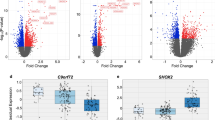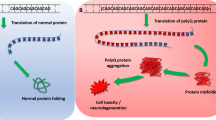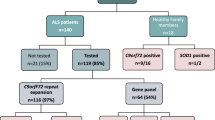Abstract.
Expansion of CTG/CAG trinucleotide repeats has been shown to cause a number of autosomal dominant cerebellar ataxias (ADCA) such as SCA1, SCA2, SCA3/MJD, SCA6, SCA7, SCA8 and DRPLA. There is a wide variation in the clinical phenotype and prevalence of these ataxias in different populations. An analysis of ataxias in 42 Indian families indicates that SCA2 is the most frequent amongst all the ADCAs we have studied. In the SCA2 families, together with an intergenerational increase in repeat size, a horizontal increase with the birth order of the offspring was also observed, indicating an important role for parental age in repeat instability. This was strengthened by the detection of a pair of dizygotic twins with expanded alleles showing the same repeat number. Haplotype analysis indicates the presence of a common founder chromosome for the expanded allele in the Indian population. Polymorphism of CAG repeats in 135 normal individuals at the SCA loci studied showed similarity to the Caucasian population but was significantly different from the Japanese population.
Similar content being viewed by others
Author information
Authors and Affiliations
Additional information
Electronic Publication
Rights and permissions
About this article
Cite this article
Saleem, Q., Choudhry, S., Mukerji, M. et al. Molecular analysis of autosomal dominant hereditary ataxias in the Indian population: high frequency of SCA2 and evidence for a common founder mutation. Hum Genet 106, 179–187 (2000). https://doi.org/10.1007/s004390000240
Received:
Accepted:
Issue Date:
DOI: https://doi.org/10.1007/s004390000240




